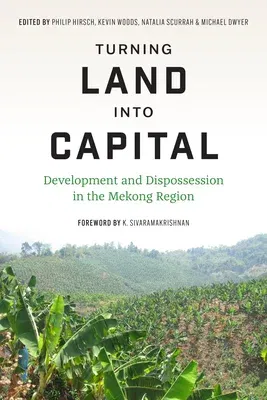Turning Land Into Capital: Development and Dispossession in the Mekong RegionHardcover, 13 September 2022

Qty
1
Turbo
Ships in 2 - 3 days
In Stock
Free Delivery
Cash on Delivery
15 Days
Free Returns
Secure Checkout

Part of Series
Culture, Place, and Nature
Print Length
264 pages
Language
English
Publisher
University of Washington Press
Date Published
13 Sep 2022
ISBN-10
0295750456
ISBN-13
9780295750453
Description
Product Details
Book Format:
Hardcover
Country of Origin:
US
Date Published:
13 September 2022
Dimensions:
22.86 x
15.24 x
1.91 cm
Genre:
Southeast Asian
ISBN-10:
0295750456
ISBN-13:
9780295750453
Language:
English
Location:
Seattle
Pages:
264
Publisher:
Series:
Weight:
557.92 gm